|
Detail of the Current Conveyor
(ACSS) Technology
Simple and short signal transfer is best:
The NFB-10.33 applies the newest high-end dual WM8741 which can support up to 32Bit/192KHz input .
The standard current model design
usually need 3 amps (OPA) ,
the first amp is the difference amp , conversion the 4
channels output signal from WM8741, become a single ended signal .
The second amp implement
the low pass analog filter , then through volume control feed to the third amp, the headphone amp
.
Every amp usually have two gain stages
built in so the WM8741 signal must through
total 6 gain stages arrive the output stages .
The NFB-10.33 applies Non-feedback ACSS design. The WM8741 feed to the ACSS
circuit without any OPAs .
The ACSS circuit conversion, signal difference and headphone amp in current
model in one ACSS amp . And this ACSS amp only have one current gain
stage ,
the WM8741 output signal only through one stage can arrive the output stages .
The shortest signal journey can reproduce the best
detail and dynamic, and almost without sound coloration , It can
show the real performance of the WM8741 .
So our ACSS design is the best combo with
WM8741 achieve the best performance .
Upside in the picture is the standard WM8741 headphone amp design.
The bottom is the NFB-10.33 design .
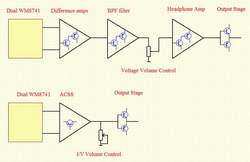
The ACSS also is a non-feedback
technology made with fully discrete amplifiers. Most people know the
global
feedback design can offer better specs in test measurements, and
non-feedback can't do well in test measurements but can offer better
sound for the human's ears. Here is a conflict of the classic circuits.
But the ACSS opens a new field, it can offer a least coloration sound
which is more neutral with very low distortion and high linearity. So
it can retain the dynamics, detail and neutral sound but not sound
bright or harsh.
The output buffers are
Non-feedback. For low impedance, we applied a diamond output stage
which is quite less colored than most conventional circuits.
The DAC is without couple
caps to avoid coloration. There are two OPAs built in as the DC serve to
keep the DC offset .
The 32bit / 384K USB interface
outputs a I2S signal to dual WM8741 .
Fully Discrete ACSS
headphone amp. THD Frequency
band
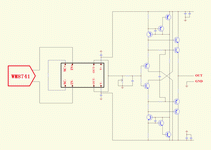 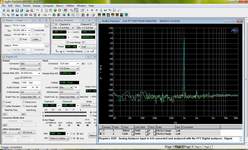
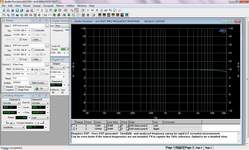
NFB-10.33 applies the excellent
dual WM8741 and excellent analog output
stages, but these are not the only keys of the best sound. The power
supply is most important. Even applying the best DA chip and the best
amp, if matched to a normal power supply, the total sound may still be
average or sound musical but can't be neutral and detailed. That is why
it is easy to find hi-end grade gears maybe without the best chips or
amp stages, but with plenteous dedicated DC supply circuits.
NFB-10.33 uses a high performance transformer.
More than 38,000uf audio grade NOVER capacitors are used to
ensure ample and smooth power feed. The NOVER capacitors are
specially custom made from NOVER (U.K.) according to Audio GD's
requirements.
The
NFB-10.33
uses 7 groups of high-quality PSU
with dedicated DC
supply. Digital and analog voltages each have separately isolated
internal power regulations.
The
analog power supply is more important for sound reproduce, in NFB-10.33,
the +15V and -15V for the ACSS analog output stages are high speed
Discrete PSU. They can offer pure and quick power supply for driving
the headphone exactly. The high voltage power supply can drive most
headphone from 15 to 600 ohms as well.
Strong power supply.
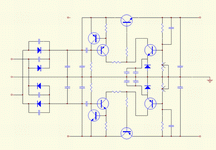
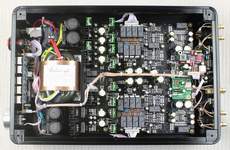
The I/V conversion
volume control without sound degradation:
Usually the volume control can be implemented in the DAC + amplifier
combo in two methods
Method 1: The
volume control is implemented into the digital stage. The major
drawback is that 1 bit of the D/A conversion is lost in every 6DB
volume reduction. So, even though the built-in DA chip is 32 bit, in
fact, only 16 bit may be left at low volume level.
Method 2: The
volume control is implemented in the analog amplifier input stage
through a volume pot to reduce the signal level. However, the volume
pot affects the sound quality adversely. A low grade volume pot
loses the details and creates channels imbalance resulting into
soundstage distortion. Even a high grade volume pot inevitably loses
the details. Both methods degrade the sound quality.
So, NFB-10.33
applies the I/V conversion volume control, the volume control is
just a variable passive I/V conversion being placed at the ACSS
amplifier output, where the output is current signal but not voltage
signal. I/V conversion is to change the volume level from the
current (I) signal to the voltage (V) signal. (Like R-2R D/A chips
output passive I/V conversion) It can keep the signal frequency band
flat while not losing any detail. It does not degrade the sound
quality in every volume level. In front of the volume control, there
are four groups of diamond non-feedback buffer output stages that
offer very low output impedance.
Mark Levinson
also knows that current volume control has great benefits, so in the
volume control of his top grade hi-end preamplifier No.32, he uses
many components to change the voltage (V) signal to current signal
(I), then through the R-2R network to control the volume, and
finally changes back to voltage signal (V) again. NFB-10.33 simply
works in current (I) signal domain, and technically, it is superior
to the conventional technology due to less conversion.
The volume
control quality is much more important in a real balanced gear. It
must guarantee the signals of the four channels are exactly the same
to bring out the benefits of a real balanced gear. If the cold
signal and hot signal of a balanced gear are not exactly the same,
the balanced output will has a large distortion causing the sound
quality and performance even much worse than a single end gear. This
is a waste of a balanced design and the additional cost.
NFB-10.33
applies digitally controlled relay-based volume control in 160 steps.
It has 80 steps in both high gain and low gain mode to allow users
to control the volume level smoothly. NFB-10.33 has two relay-based
volume control boards (totally four channels) through changing the
DALE resistors to control the volume to avoid channel imbalance,
achieving the best performance and sound quality of the gear. While
users
change the volume, the different relays break or close, it may had
slightly switch sound on output and disappear while stop change the
volume.
Precise four-channel digitally controlled relay-based
volume control.
High / Low gain modes volume control characteristic

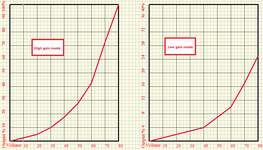
Static storage mode control software:
In most control softwares design, the MCU
will continuously output data to the perform parts , the MCU had the
very high speed, so the output data become high frequency impulses
disturb the audio signal circuits make the sound worst .
This product had applied static storage mode control software , the MCU
output once control data and save in the perform parts while just
power on and users operate ,then stop output data until users next
operation. This design make the sound quality improve on the clear
and transparency . |

